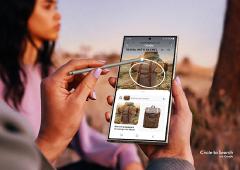Categories
How giffgaff transformed the telecom industry in the UK
6 minute read
giffgaff is celebrating its 10th anniversary and has just been nominated as Which? recommended mobile network provider for the 7th consecutive year with the highest score in its history. With this in mind I wrote this article underpinning how giffgaff is shaping the future of mobile networks within the UK. Spoiler alert: a large part of its success is due to listening to the giffgaff community members.
A little over a decade ago, O2’s executive Gav Thompson had an idea: what if there was a mobile network that worked more like Wikipedia? It would be a community-focused effort, where members were rewarded for promoting the business and answering support queries. By operating online with a minimal staff, such a network could offer incredibly good rates to its members and still afford to pay them back for their hard work. The idea was thought feasible by Thompson’s peers at O2, and they even found the perfect name for it: giffgaff, after an ancient Scottish term for mutual giving. The giffgaff community forums rolled out in August 2009, followed by the network as a whole in November the same year. giffgaff piggy-backed on O2’s mobile network, but was spun out and operated as an independent company. In total, it took just six months for giffgaff to get off the ground!
Back then, in the late naughties, there just weren’t many mobile operators that focused on delivering good value for their customers. There were plenty that offered to sell you the latest Nokia or iPhone for a hefty monthly fee, but as a recent graduate I couldn’t afford more than a simple pay-as-you-go line with the bare minimum of minutes, texts and data. I was turned onto giffgaff in 2010 by my boss at the time, who really sold up the community aspects of the platform – and the fact that you could earn £5 for each person that joined giffgaff! In fact, he told me that there were some people in that early giffgaff community that had made hundreds or thousands of pounds giving out giffgaff SIMs in public locations like train stations, corner shops and central parks.
Apart from offering jolly good value on their SIM only deals, giffgaff weren’t keen to tie you down with a long 18 month contract, paying off a subsidised phone. You had the freedom to change between different goodybags from month to month, scaling up or down depending on your usage, and even the pay-as-you-go rates were reasonable. Call charges were also some of the lowest in the industry. Customer service was different too – you posted on community forums if you had any issues, and giffgaff members were incentivised to answer your questions helpfully by the prospect of payback down the road. Only if you had a serious issue would you need to speak to an actual giffgaff employee, and you’d never need to pick up the phone or visit a store to do so. It was a big change from the labyrinthine automated call centres of the bigger mobile companies I was used to, and suited me down to the ground.
giffgaff gives its members a chance
I was short on money at the time, so I wanted to get involved with giffgaff to make a little extra cash. I referred a few friends to giffgaff, but I didn’t really have the time to go around offering people SIM cards en masse like others did. What I did have was a fair bit of knowledge about how phones worked, which came from my day job as a technology writer. I resolved to be active in the giffgaff community, answering questions on the forums to help out where I could and earning free credit to top up my phone along the way.
It was there that I learned that giffgaff was looking for members to contribute to their blog, in early 2012. I applied and got in, which felt fantastic. I started writing blogs two or three times a week, rounding up the biggest tech headlines of the week and answering common questions around mobile phones – like what ‘E’ and ‘H+’ meant when they were in the top right corner of your phone’s screen or how you could make your phone last longer than a day between charges. The payback I got for these blogs gave me some extra spending money, and years later it allowed me to take nice wedding photos with my beautiful bride in Beijing. More importantly, it kept me in touch with the friendly giffgaff community, who wrote kind comments and asked insightful questions on almost every blog or forum post I made. As well as just being welcoming, giffgaff members have proved to be industrious too.
Microgaff: A huge community effort to save giffgaff
For instance, micro SIM card slots started appearing in mobile phones from 2011, but giffgaff only offered the standard size - too big to fit in these new models. Members came to the rescue, cutting the bigger SIMs down and shipping them out en masse. In 2013 alone, the [‘microgaff’] (https://community.giffgaff.com/t5/Blog/Cutting-a-nano-SIM-for-the-iPhone-5/ba-p/6061444) project produced over 100,000 Micro SIM cards, and the members responsible collected a tidy payback for their efforts.
As well as being industrious, giffgaff members are also known for their charity. Since 2010, it’s been possible to receive your payback as phone credit or cash, but you also get the choice to donate it to a community-nominated charity. In total, giffgaffers have contributed £700K this way - quite an effort! giffgaff has also spent time showcasing the work of its members, such as the top ten Super Recruiters who were responsible for nearly 20% of all new members in September 2017. In total, giffgaff has given over ten million quid in payback to its members.
Seven years after I started contributing to giffgaff, I’m still writing blogs and helping out where I can – and the community feel of this place hasn’t changed a bit. However, the company has gotten bigger, and now offers a lot more to its members: used phone recycling and resales, sim-free phones you can pay off monthly, bigger goodybags with more data and even a peer-to-peer lending service. A lot of these services got their start as ideas from giffgaff members in the giffgaff Labs, before being polished and brought online as official services. giffgaff still offers great value too, particularly on its sub-£10 4G goodybags, and members are free to come and go as they wish.
giffgaff is shaping the future of British telecoms
Perhaps unsurprisingly, smart marketing and high member satisfaction has made giffgaff into one of the biggest virtual network operators in the UK, and it doesn’t show signs of slowing down any time soon.
Given that, it’s not surprising that the so-called ‘giffgaff model’ is being explored by other companies too. Smarty and Voxi are two recent examples of new mobile operators that seem to have taken pages from the giffgaff playbook. And giffgaff’s influence isn’t limited just to the mobile industry either, with the founders of member-focused virtual bank Monzo and the green energy supplier Bulb also citing giffgaff’s business model as an influence. Employees directly communicate with the ‘community’ via its online forum, and its members can have a say on important company decisions much like giffgaff.
After being in this community for eight years, I believe that as long as giffgaff keeps its members first, there’s no limit to what this plucky upstart can achieve. Here’s to another decade of innovation, value and community.






